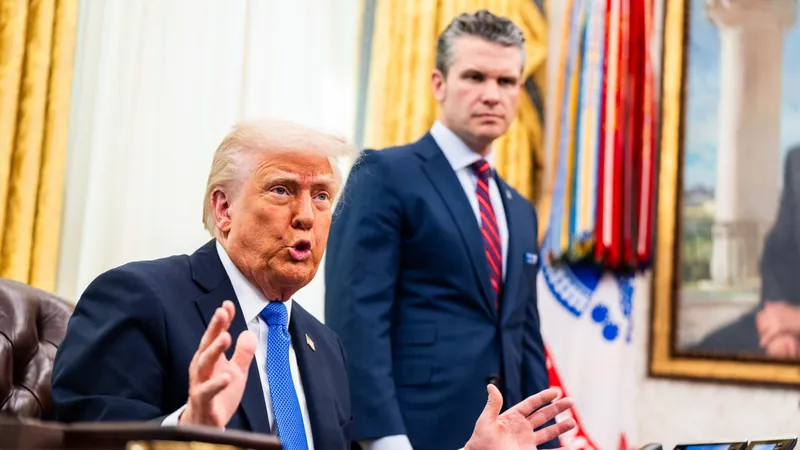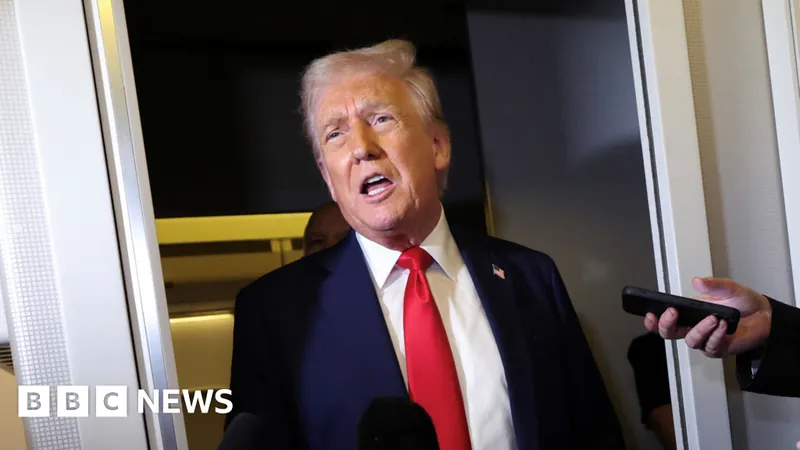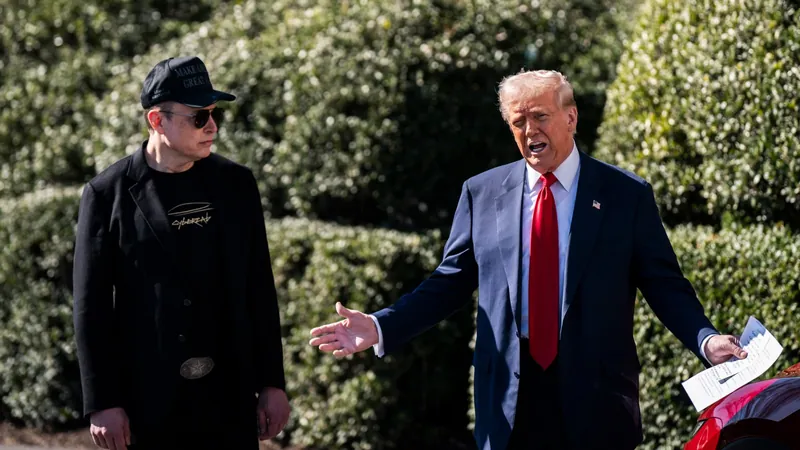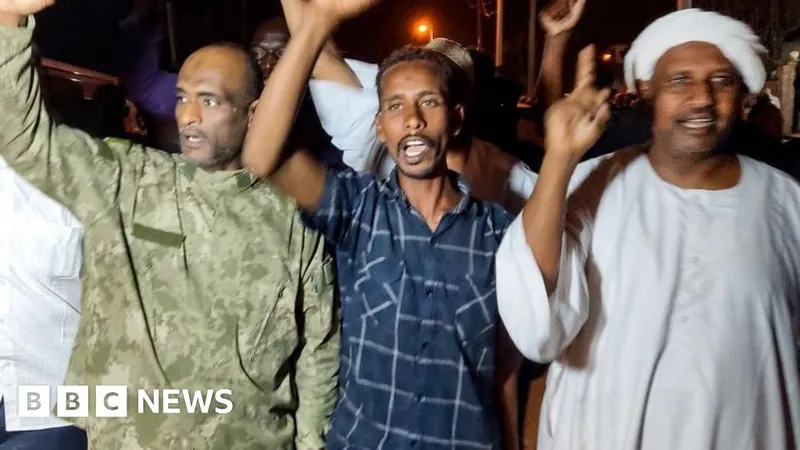
The Signal Scandal: A Disturbing Reflection on U.S. Military Strategy
2025-03-30
Author: William
In a revealing moment in a group chat discussing military operations in Yemen, Vice President J.D. Vance expressed profound concerns, stating, “I think we are making a mistake.” His skepticism towards military interventions is commendable, yet it raises an alarming contradiction: many who vowed to reshape American foreign policy are falling back into the same blunders that characterized previous debacles, such as the War on Terror.
The gravity of the situation cannot be overstated; allowing a designated terrorist group to launch missiles in strategic maritime areas is a pressing issue. However, the belief that such complexities can be managed through military strikes alone is dangerously simplistic. The scandal, sparked by National Security Adviser Mike Waltz’s decision to include Jeffrey Goldberg, editor-in-chief of *The Atlantic*, in a sensitive messaging group on Signal, has incited a whirlwind of partisan debate. Still, it begs a crucial question: *What are we trying to achieve?*
The U.S. is not officially at war with Yemen or its ruling Houthi faction, yet military strikes have intensified, particularly following former President Donald Trump’s 2023 Executive Order designating the Houthis as a Foreign Terrorist Organization. This decision aimed to diminish their operational capabilities amid rising tensions involving Iran, who supports this faction.
The Houthis, recently reinvigorated as part of what they term the "Axis of Resistance," began direct assaults on vessels in strategic waterways, including the Suez Canal. The U.S. response has been striking engagements since early January 2024, reflecting an increased desire to display support for Israel amidst escalating tensions with Iran. However, this led to severe economic repercussions, with international shipping routes suffering massive traffic declines and losses amounting to billions.
Despite continued airstrikes by the U.S., the Houthis have exhibited remarkable resilience, with reports of numerous attacks on commercial shipping and U.S. naval forces. This relentless campaign has not deterred their operations; instead, it has fostered an environment of escalating violence and instability in Yemen.
Critically, as military actions continue, the U.S. strategy remains ambiguous. In light of a ceasefire previously declared between Israel and Hamas, hostilities have not abated, revealing a complex web of regional tensions that the current administration needs to navigate carefully. The proposed military solutions echo historical precedents of ineffective foreign policy that often neglect the underlying political dynamics at play.
Compounding the problem is a lack of accountability in military strategies, especially regarding civilian casualties. Recent airstrikes conducted under ambiguous missions have reportedly caused significant harm to civilian infrastructures, raising serious ethical concerns. The Pentagon’s reluctance to disclose casualty figures only adds to the public's uncertainty about the true costs of these interventions.
As the U.S. grapples with its military identity and policy formulation, the recent Signal chat controversy underscores a broader critique of the current leadership's approach towards foreign aggression. It reveals a tendency to resort to military action as a default response without engaging in a profound examination of effective, long-term solutions.
America's history with military conflicts reiterates that merely mobilizing firepower does not equate to victory. In examining military engagements, there are echoes of past conflicts where the pursuit of straightforward military solutions led to prolonged struggles with devastating consequences.
To prevent repeating past mistakes, a serious reassessment of U.S. strategy is essential—recognizing that comprehensive diplomatic engagement may hold more potential for lasting peace than the allure of military might. Only time will tell if the new power players in Washington can shift from an unconditional reliance on force to a more nuanced approach that prioritizes negotiation and understanding in a complicated world landscape.









 Brasil (PT)
Brasil (PT)
 Canada (EN)
Canada (EN)
 Chile (ES)
Chile (ES)
 Česko (CS)
Česko (CS)
 대한민국 (KO)
대한민국 (KO)
 España (ES)
España (ES)
 France (FR)
France (FR)
 Hong Kong (EN)
Hong Kong (EN)
 Italia (IT)
Italia (IT)
 日本 (JA)
日本 (JA)
 Magyarország (HU)
Magyarország (HU)
 Norge (NO)
Norge (NO)
 Polska (PL)
Polska (PL)
 Schweiz (DE)
Schweiz (DE)
 Singapore (EN)
Singapore (EN)
 Sverige (SV)
Sverige (SV)
 Suomi (FI)
Suomi (FI)
 Türkiye (TR)
Türkiye (TR)
 الإمارات العربية المتحدة (AR)
الإمارات العربية المتحدة (AR)